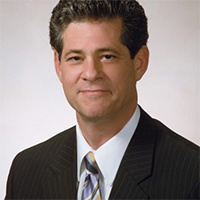 Midlothian RICO Act Lawyers, Virginia
Midlothian RICO Act Lawyers, Virginia
Sponsored Law Firm
-
 x
x

Click For More Info:
-
Bounds & Bounds, PLLC
1724 Cloister Dr Richmond, VA 23238» view mapDivorce & Family Law 40+ Years Combined Experience
All of our attorneys are Marines. We think outside the box to get the job done–stress be damned. We believe success is built upon a range of experiences.
800-799-5380
Not enough matches for Midlothian RICO Act lawyer.
Below are all Midlothian Criminal lawyers.
Sponsored Lawyers
1-10 of 35 matches
Criminal, Car Accident, Personal Injury, Wrongful Death, Employment
Mr. Montgomery has over 15 years of trial litigation experience in criminal law, personal injury law (car accidents and medical malpractice) and employment law. Mr. Montgomery is a lifetime member of the Million Dollar Advocates Forum as he has obtained million dollar verdicts for several clients.
(more)Accident & Injury, Criminal, Wrongful Death, Motor Vehicle, Traffic
STEPHEN V. SOMMERS (licensed in Virginia 1999, Texas (1997), Maryland (1996)), was born at Camp Pendleton, CA, October 4, 1956 and educated at Troy State University (B.S., Summa Cum Laude, 1981), Golden Gate University (M.A., 1986) and American University (Juris Doctor, 1995). Mr. Sommers retired from the United States Air Force at the rank of Major after 22 years flying fighter aircraft. Mr. Sommers has been admitted to practice before the United States District Courts for the Fourth Circuit and the Tenth Circuit and all Virginia Courts. He is a member of the American Trial Lawyers Association, the Virginia Trial Lawyers Association, Virginia Criminal Defense Lawyers Association, Aviation Section of the Texas Bar Association, the American Bar Association, and the Lawyer-Pilot Bar Association, as well as each state’s Bar Association he is licensed in. Mr. Sommers has extensive experience in all types of trial litigation and specializes in personal injury, criminal defense, medical malpractice, product liability, aviation crash litigation, as well as general civil litigation in state and federal courts. A member of The Million Dollar Advocates Forum, the most prestigious group of trial lawyers in the United States. Nominated by the American Institute of Personal Injury Attorneys as 10 Best for 2015 and 2016.
(more)Family Law, Divorce, Mediation, Criminal, Employment
Carol A. N. Breit, Attorney at Law, in Richmond, Virginia, is dedicated to offering clients personalized attention, carefully evaluating each case to find the best possible solution. With years of experience, she provides effective representation in family law, criminal defense, personal injury, and employment law matters. Carol is skilled in both negotiation and litigation, using her expertise to resolve disputes efficiently while being ready to fight for her clients in court when necessary. In family law, Carol guides clients through issues such as divorce, custody, visitation, child support, and spousal support. As a criminal defense attorney, she defends clients against felony and misdemeanor charges, including DUIs and drug offenses. Carol also represents individuals in personal injury cases, helping them recover compensation for injuries, medical expenses, and lost wages, as well as wrongful death actions. Having started her career as a prosecutor, Carol brings invaluable insight into the litigation process. This experience allows her to protect clients’ rights while offering strong, strategic advocacy in all legal matters. Contact Carol today to schedule a consultation and discuss how she can assist you with your case.
(more)Criminal, DUI-DWI, Traffic, Divorce & Family Law
Jason Moore is a life long resident of Central Virginia. He graduated from Uva where he majored in History, and worked at the school paper. He took a year off between undergraduate and law school to work as a legislative assistant at the Virginia General Assembly. He then attended T.C. Williams School of Law at the University of Richmond. As part of his studies at Richmond, he did a semester aboard studying at Emmanuel College at Cambridge University in Great Britain. For the last twenty-one years, Jason has practiced criminal law from the Carolina line to north of Richmond and from New Kent to Nelson. He has worked on almost every type of criminal case imaginable from traffic tickets, reckless driving, DUI or driving revoked to larceny, embezzlement, breaking and entering to various violent sex offenses, to murder. He has tried 30 jury trials including two murder jury trials. Jason is admitted to practice in all Virginia courts and has argued cases before the Virginia Supreme Court and Virginia Court of Appeals. He is also admitted the the US District Court, the 4th Circuit Court of Appeals, the Bankruptcy bar and has conducted hearing before Social Security Administration Judges. The results of some of Jason’s cases have been mentioned in Virginia Lawyer’s Weekly, and he has been interviewed by all three local TV stations, the Richmond Times Dispatch and WRVA regarding various cases he has tried.
(more)


 Daniel J. Bounds Richmond, VA
Daniel J. Bounds Richmond, VA Practice AreasExpertise
Practice AreasExpertise




